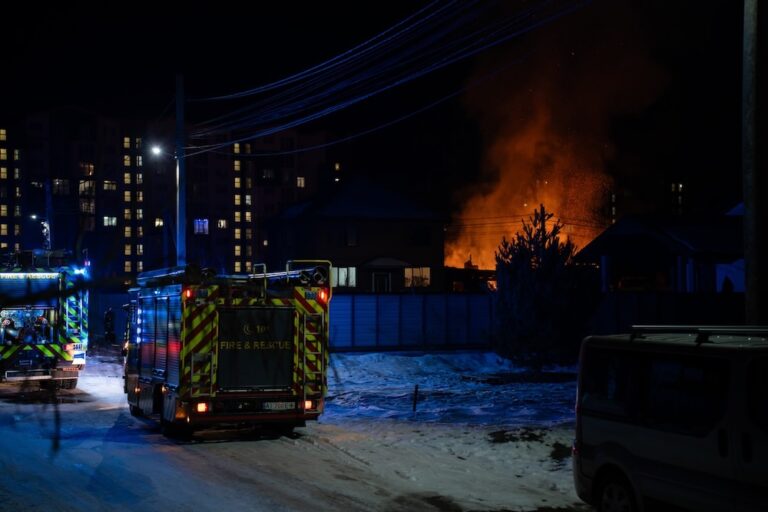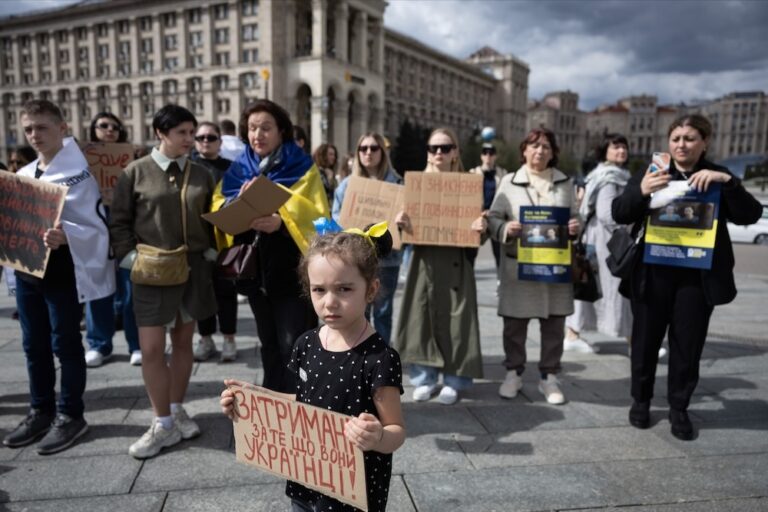(CJES/IFEX) – The Court of Cassation of the Moscow City Court has found the newspapers, “Saratovsky Vzglyad”, “Moskovsky Komsomolets v Saratove” and “Novyye Vremena” guilty of plotting to defame businessman Roman Pipiya, “Kommersant” reported. The Moscow City Court issued that ruling after considering an appeal filed by the Saratov media organizations and one of the […]
(CJES/IFEX) – The Court of Cassation of the Moscow City Court has found the newspapers, “Saratovsky Vzglyad”, “Moskovsky Komsomolets v Saratove” and “Novyye Vremena” guilty of plotting to defame businessman Roman Pipiya, “Kommersant” reported.
The Moscow City Court issued that ruling after considering an appeal filed by the Saratov media organizations and one of the defendants, Viktor Sinitsyn, a director of the Saratov River Transport Enterprise, against a ruling issued by the Moscow Presnensky Court, which had found the publications guilty of “deliberate defamation” of Pipiya.
According to “Kommersant”, the court has ordered the defendants to publish a refutation; each publication was also ordered to pay the businessman 25,000 rubles (approx. US$900) in moral damages.
Pipiya filed his suit against the papers over 18 articles published by them over the course of two years, “Kommersant” reported. The articles accused the businessman of illegal enterprise.
None of the defendants agreed with the ruling. Alexei Koloborodov, one of the defendants, told “Kommersant”: “The huge number of procedural discrepancies and forced arguments, which helped Pipiya arrange the trial of the case to be held at the Moscow Presnensky Court instead of Saratov, where everything took place, continued to happen in the Moscow City Court. Despite the defense lawyers’ requests, our witnesses in the case were never called to trial and our opinion was not taken into account during the decision-making process.”
“Saratovsky Vzglyad” editor Vadim Rogozhin told “Kommersant” the court’s bias was also indicated by the fact that the judge who issued a ruling in Pipiya’s favor in the Court of First Instance was transferred to the Court of Cassation of the Moscow City Court, which considered the appeal filed by the Saratov media organizations.
The journalists intend to seek justice in the Supreme Court, which they are hoping will reverse the judgment.
CJES believes the plaintiff and the judicial bodies in this case are trying to put pressure on the journalists to limit their reporting.
The plaintiff could not accuse the media outlets of slander – since the articles were based on materials relating to law enforcement agencies’ investigation into his business activities – so Pipiya instead accused a whole group of media outlets of launching a smear campaign against him.
The lawsuit is unprecedented in Russia. By supporting the plaintiff, the courts in effect are telling the media what and, more importantly, how much they should write about the activities of a particular individual. This is alarming because journalists can now be accused of conspiracy to defame merely from conducting journalistic investigations into the activities of businessmen and officials.
CJES believes that the court in this case in effect deprived the journalists of the freedom to choose what issues to write about. Under this ruling, every editorial board is required to have a table indicating how many articles are devoted to a particular individual. And that is nothing but censorship.


